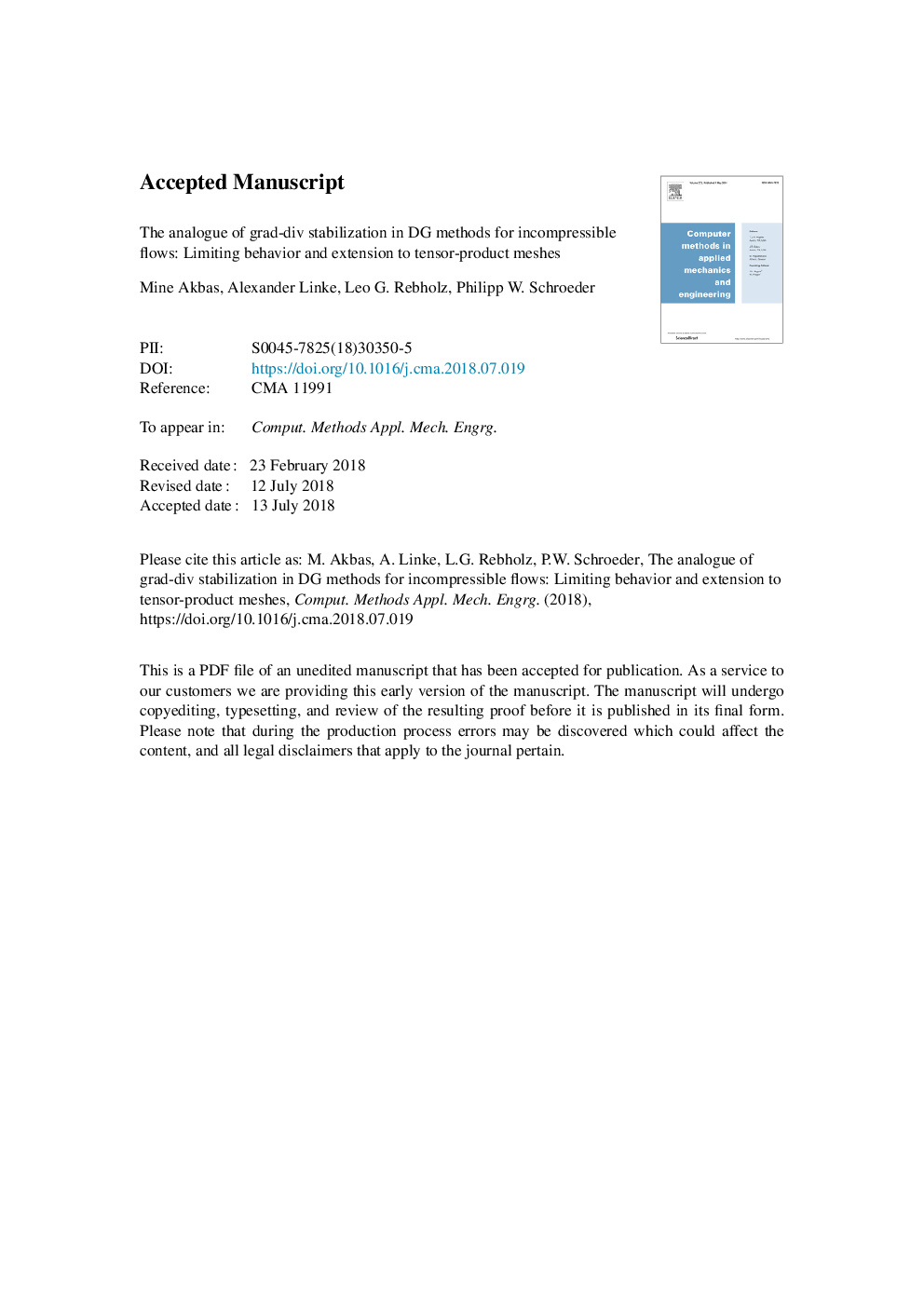| کد مقاله | کد نشریه | سال انتشار | مقاله انگلیسی | نسخه تمام متن |
|---|---|---|---|---|
| 6915294 | 1447394 | 2018 | 25 صفحه PDF | دانلود رایگان |
عنوان انگلیسی مقاله ISI
The analogue of grad-div stabilization in DG methods for incompressible flows: Limiting behavior and extension to tensor-product meshes
دانلود مقاله + سفارش ترجمه
دانلود مقاله ISI انگلیسی
رایگان برای ایرانیان
کلمات کلیدی
موضوعات مرتبط
مهندسی و علوم پایه
مهندسی کامپیوتر
نرم افزارهای علوم کامپیوتر
پیش نمایش صفحه اول مقاله

چکیده انگلیسی
grad-div stabilization is a classical remedy in conforming mixed finite element methods for incompressible flow problems, for mitigating velocity errors that are sometimes called poor mass conservation. Such errors arise due to the relaxation of the divergence constraint in classical mixed methods, and are excited whenever the spatial discretization has to deal with comparably large and complicated pressures. In this contribution, an analogue of grad-div stabilization for Discontinuous Galerkin methods is studied. Here, the key is the penalization of the jumps of the normal velocities over facets of the triangulation, which controls the measure-valued part of the distributional divergence of the discrete velocity solution. Our contribution is twofold: first, we characterize the limit for arbitrarily large penalization parameters, which shows that the stabilized nonconforming Discontinuous Galerkin methods remain robust and accurate in this limit; second, we extend these ideas to the case of non-simplicial meshes; here, broken grad-div stabilization must be used in addition to the normal velocity jump penalization, in order to get the desired pressure robustness effect. The analysis is performed for the Stokes equations, and more complex flows and Crouzeix-Raviart elements are considered in numerical examples that also show the relevance of the theory in practical settings.
ناشر
Database: Elsevier - ScienceDirect (ساینس دایرکت)
Journal: Computer Methods in Applied Mechanics and Engineering - Volume 341, 1 November 2018, Pages 917-938
Journal: Computer Methods in Applied Mechanics and Engineering - Volume 341, 1 November 2018, Pages 917-938
نویسندگان
Mine Akbas, Alexander Linke, Leo G. Rebholz, Philipp W. Schroeder,